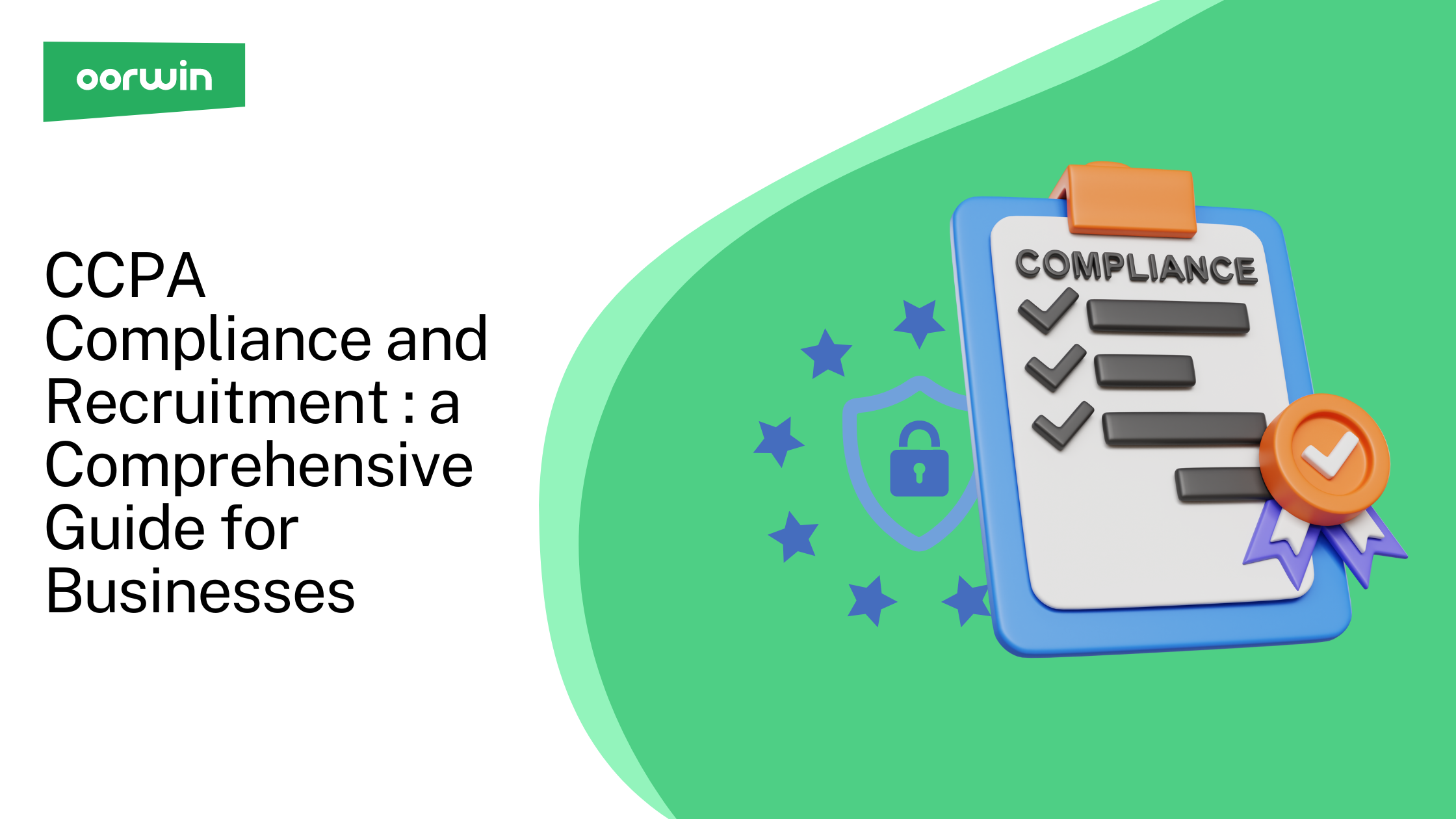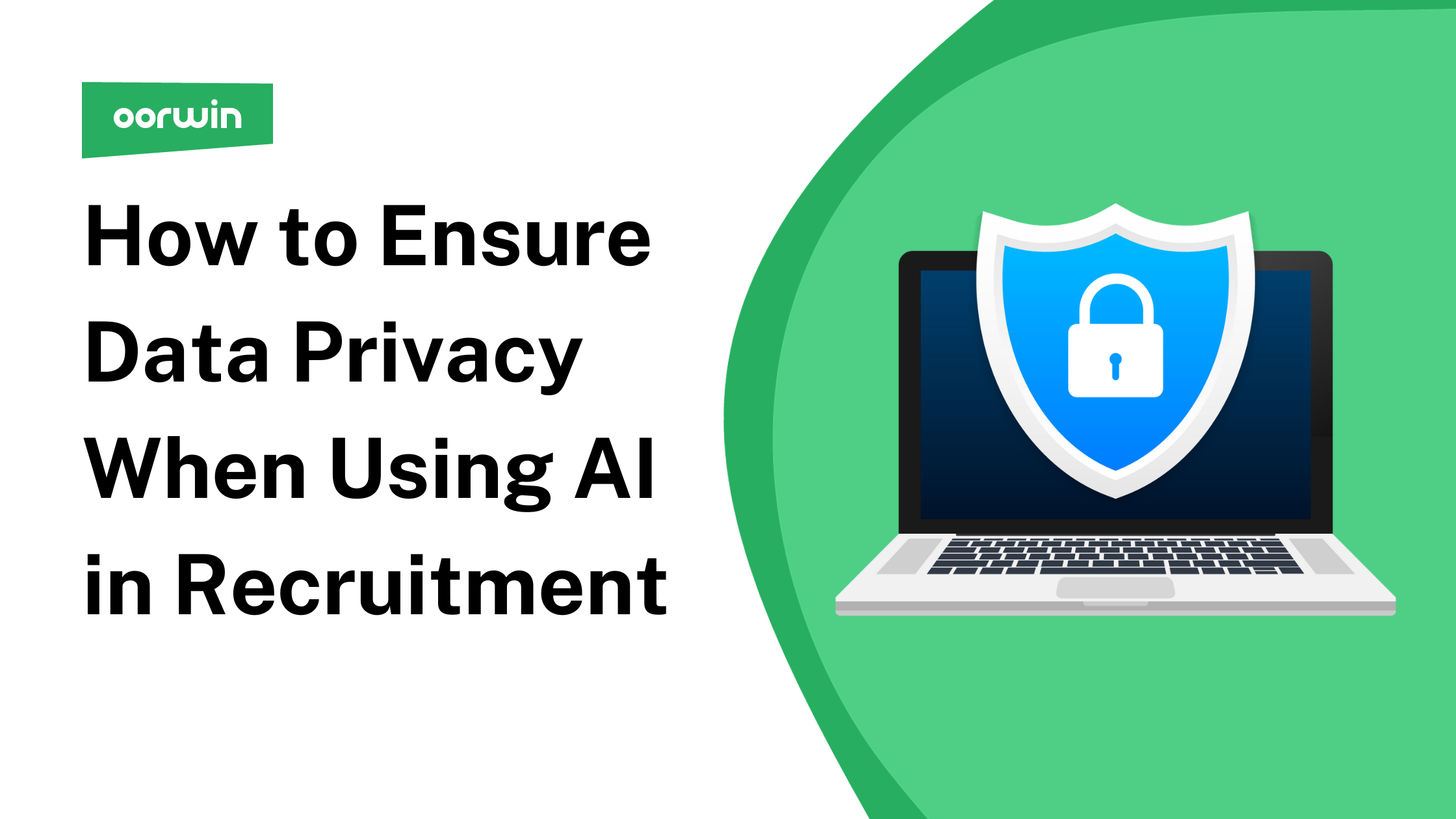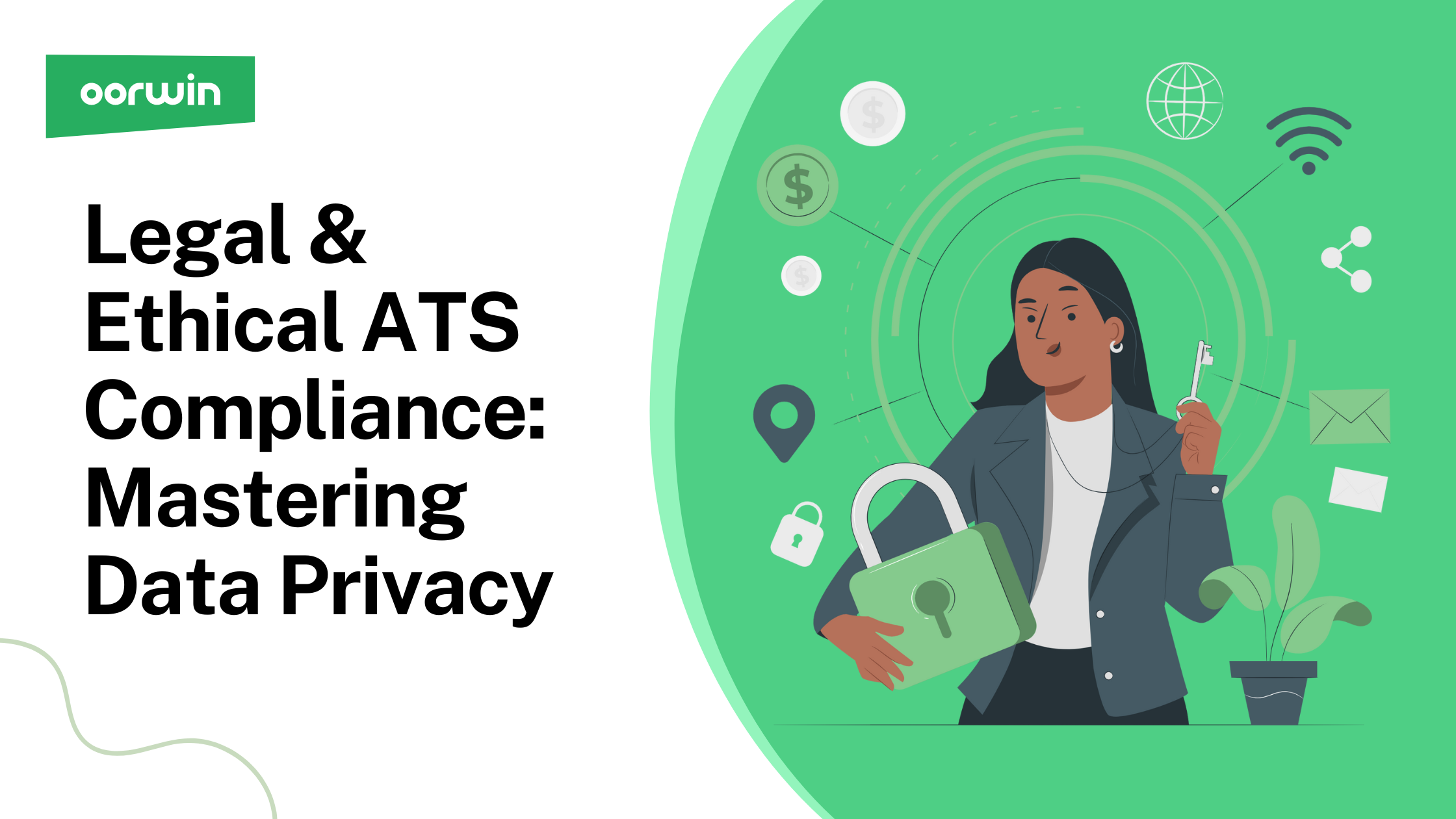The Ultimate Guide to CCPA Compliance and Recruitment for 2024
Entering 2024, mastering CCPA compliance within recruitment is crucial for businesses to thrive. This comprehensive guide ensures your recruitment strategies adhere to California’s stringent privacy regulations. It equips you with essential knowledge and practices to seamlessly integrate CCPA compliance into your recruitment processes, safeguarding both your business operations and the privacy rights of Californian candidates.
What is the California Consumer Privacy Act (CCPA)?
The California Consumer Privacy Act (CCPA) is a groundbreaking privacy law that affects businesses collecting personal information from California residents. Enacted to empower consumers, it mandates transparency around data collection and grants individuals control over their personal information. Companies must disclose what data they collect and for what purpose while allowing consumers to opt out of data selling, ensuring a higher privacy standard.
Key Provisions of the CCPA
The CCPA introduces critical rights for consumers, including the right to know about, access, and delete their personal information collected by businesses. It also allows consumers to opt out of the sale of their information and imposes strict obligations on companies to safeguard California residents’ data privacy. These provisions aim to enhance consumer privacy and set a benchmark for data protection, significantly impacting business practices in California and beyond.
1. Right to Know
Consumers have the right to know what personal information businesses collect about them, including the categories of data and the purposes for which it is used. This transparency ensures consumers are informed about how their data is handled, fostering trust between businesses and consumers while ensuring compliance with CCPA regulations.
2. Right to Delete
The CCPA grants consumers the right to request the deletion of their personal information held by businesses. This empowers individuals to control their digital footprint, ensuring they can protect their privacy and minimize potential data misuse, reflecting the act’s emphasis on consumer rights in the digital age.
3. Right to Opt-Out
Consumers can opt out of having their personal information sold to third parties, a cornerstone of CCPA. This provision places control back into the hands of consumers, challenging businesses to reconsider their data practices and prioritize consumer privacy in their operations, marking a significant shift towards more ethical data handling.
4. Right to Non-Discrimination
Under the CCPA, businesses cannot discriminate against consumers who exercise their privacy rights. This ensures that all consumers can assert their rights without fear of penalty, such as receiving a lower quality of goods or services, safeguarding the equitable treatment of consumers irrespective of their privacy preferences.
5. Notice at Collection
Businesses must provide clear and timely notice to consumers at or before collecting personal information, detailing what data is being collected and for what purpose. This upfront transparency is fundamental to consumer trust and compliance, ensuring consumers are informed and consent to the data collection practices.
6. Data Security
CCPA mandates businesses to implement reasonable security measures to protect consumers’ personal information against unauthorized access, theft, or disclosure. This requirement underscores the importance of robust data security practices in safeguarding consumer privacy and preventing data breaches, reflecting CCPA’s comprehensive approach to data protection.
7. Sensitive Personal Information
The CCPA offers enhanced protections for sensitive personal information, including biometric data, health information, and financial records. Businesses must handle this data with utmost care, adhering to stricter consent and security requirements, highlighting the act’s recognition of the heightened privacy interests in sensitive personal information.
8. Private Right of Action for Data Breaches
Consumers affected by data breaches involving unencrypted or unredacted personal information can initiate legal action against the violating business. This provision empowers consumers to seek redress and encourages companies to maintain high data security standards, emphasizing the severe consequences of failing to protect consumer data.
CCPA vs GDPR- What’s the Difference
While CCPA and GDPR focus on data protection, fundamental differences exist. CCPA applies specifically to California residents and businesses, emphasizing consumer rights like knowing, deleting, and opting out. GDPR, however, has a broader scope and is used by all EU citizens and businesses, with stringent consent requirements and data protection principles. Both aim to enhance privacy but differ in scope, rights, and compliance obligations.
1. Scope and Applicability in Recruitment
In recruitment, CCPA impacts California-based employers and those hiring California residents, requiring transparency in data collection and consent for data use. GDPR affects recruitment by EU companies or those hiring EU residents, demanding explicit consent for processing candidates’ data. Both regulations necessitate adjustments in recruitment practices, ensuring candidate data is handled lawfully, transparently, and with respect for privacy.
2. Privacy Rights Affecting Recruitment
CCPA and GDPR significantly influence recruitment, demanding clear communication and consent regarding candidate data collection and use. Recruiters must inform candidates about data processing activities and obtain consent where necessary, ensuring practices comply with individuals’ privacy rights. This shift requires robust privacy policies and procedures, directly affecting how recruiters approach candidate engagement, data storage, and processing.
3. Compliance and Fines
Compliance with CCPA and GDPR in recruitment involves adhering to strict data protection and privacy standards, with significant fines for non-compliance. CCPA fines can reach $7,500 per violation, while GDPR penalties may exceed €20 million or 4% of annual global turnover. These potential fines underscore the importance of meticulous compliance efforts in recruitment practices.
Updates and Amendments to CCPA
The CCPA has undergone updates and amendments to address emerging privacy concerns and clarify obligations. Notably, the California Privacy Rights Act (CPRA) enhances CCPA, introducing new rights and strengthening existing ones. Amendments like AB 1281 extend employee and B2B exemptions, while others refine consumer rights and data breach provisions. These updates reflect evolving privacy standards and the need for businesses to stay current with compliance requirements.
1. California Privacy Rights Act (CPRA)
The CPRA, an amendment to the CCPA, expands consumer privacy rights, including correcting inaccurate information, restricting the use of sensitive personal information, and enhancing protections for minors. It also establishes the California Privacy Protection Agency, enforcing privacy laws and ensuring businesses comply, signaling a significant evolution in California’s privacy landscape and setting new benchmarks for data protection.
2. Employee and B2B Exemptions Extended (AB 1281)
AB 1281 extends the CCPA exemptions for employee information and business-to-business communications until January 1, 2023. This allows businesses more time to prepare for full compliance, recognizing the unique challenges in handling employee and B2B data under CCPA. It reflects a pragmatic approach to implementing privacy protections while considering business operational realities.
3. Consumers’ Right to Opt-Out of the Sale of Personal Information (AB 713)
AB 713 amends CCPA to clarify the scope of de-identified health information and the conditions under which it can be shared without falling under ‘sale’ definitions. This adjustment influences privacy with the need for health information exchange, highlighting CCPA’s flexibility in adapting to sector-specific privacy concerns.
4. Consumer Requests for Information (AB 1564)
AB 1564 simplifies the process for consumers to submit requests for information, allowing businesses to provide either a telephone number or an email address for these requests. This amendment eases compliance burdens on businesses while maintaining consumers’ ability to exercise their rights, showcasing CCPA’s aim to be both consumer-friendly and business-practical.
Achieving CCPA Compliance Requirements in Terms of Recruitment
Achieving CCPA compliance in recruitment necessitates a comprehensive approach. Organizations must first determine if CCPA applies, then update privacy policies and practices to include clear notices at data collection points. Conducting data inventory and mapping helps understand data flows and storage, which is essential for responding to consumer rights requests. Training staff on CCPA requirements and assessing third-party vendors for compliance are critical steps. Implementing reasonable security measures, conducting regular compliance audits, and preparing for data breaches further ensure adherence to CCPA.
1. Identify if CCPA Applies to your Organization.
Determining CCPA applicability involves assessing whether your organization collects personal information from California residents, considering factors like business size and data handling practices. If applicable, you must comply with CCPA’s requirements, adapting your recruitment processes to ensure transparency and consumer control over personal data. This assessment is crucial for setting the foundation of your compliance strategy and guiding further actions toward ensuring privacy rights are respected in recruitment activities.
2. Provide clear notices at or before collecting personal data.
Providing clear notices at or before collecting personal data is a cornerstone of CCPA compliance in recruitment. Notices must detail the categories of personal information collected, the purpose for collection, and how it will be used. This transparency ensures candidates are informed and can exercise their privacy rights effectively, fostering trust and compliance. Comprehensive and understandable notices are essential for ethical recruitment practices that respect candidate privacy.
3. Update your Privacy Policy
Updating your privacy policy to reflect CCPA requirements is vital. This includes detailing consumer rights under CCPA, such as the right to know, delete, and opt out, and explaining how candidates can exercise these rights. An apparent, accessible privacy policy ensures compliance and demonstrates your commitment to protecting candidate data, an increasingly important factor for job seekers evaluating potential employers in today’s digital age.
4. Data Inventory and Mapping
Data inventory and mapping involve cataloging the personal information your organization collects, processes, and stores, especially in recruitment. This process identifies the flow of candidate data through your systems, highlighting where and how data is stored, used, and potentially shared. It’s a critical step for CCPA compliance, ensuring you understand the scope of your data handling practices and can effectively manage and protect candidate information.
5. Set up processes to respond to Consumer Rights Requests
Setting up efficient processes to respond to consumer rights requests under CCPA is essential for compliance. This includes establishing mechanisms for candidates to exercise their rights to know, delete, or opt out and ensuring timely and accurate responses to these requests. Efficiently and appropriately comply with legal requirements and enhance the candidate experience by respecting their privacy rights and personal data.
6.Training and Awareness within Staff
Training and raising awareness among staff about CCPA and its implications for recruitment is crucial. Educating your team on the importance of privacy, the specifics of CCPA compliance, and how to handle personal information responsibly ensures that privacy considerations are integrated into your recruitment processes. This proactive approach minimizes compliance and fosters a culture of privacy and respect for candidate data within your organization.
7. Assess your Third-party Vendors and Contracts
Assessing third-party vendors and reviewing contracts for CCPA compliance is critical, especially in recruitment. Ensure that any third party handling candidate data on your behalf adheres to CCPA requirements, including data protection and privacy rights. This assessment and contractual adjustments protect against compliance risks and safeguard candidate information throughout the recruitment process, reflecting your commitment to privacy and responsible data handling.
8. Implement Reasonable Security Measures.
Implementing reasonable security measures to protect candidate data is a fundamental CCPA requirement. This involves adopting appropriate technical, physical, and administrative safeguards to prevent unauthorized access, disclosure, or theft of personal information. Regularly reviewing and updating these security practices in light of emerging threats and technological advancements is essential for maintaining the integrity and confidentiality of candidate data, ensuring your recruitment practices meet CCPA’s data protection standards.
9. Conduct regular CCPA Compliance Audits
Regular CCPA compliance audits are necessary to ensure ongoing adherence to privacy regulations in recruitment. These audits evaluate your data handling practices, privacy policies, and compliance frameworks against CCPA requirements, identifying gaps and areas for improvement. Conducting these audits periodically helps maintain compliance, adapt to regulatory changes, and reinforce your commitment to protecting candidate privacy, which is essential for trustworthy and legally compliant recruitment practices.
10. Prepare for Data Breaches
Preparing for data breaches involves establishing protocols to detect, respond to, and recover from security incidents affecting candidate data. This preparation is crucial for CCPA compliance, ensuring you can quickly address breaches, notify affected individuals, and take corrective actions. Effective breach response plans minimize the impact on candidates and your organization, demonstrating a responsible approach to data security and compliance with CCPA’s stringent requirements.
Common Challenges and Solutions in CCPA Compliance
Addressing data security and privacy concerns, handling consumer requests efficiently, and ensuring staff are trained on CCPA requirements are common challenges in achieving compliance. Solutions include implementing robust security measures, establishing transparent processes for responding to rights requests, and conducting regular training sessions. Overcoming these challenges ensures your recruitment practices are compliant and respect candidate privacy.
1. Addressing Data Security and Privacy Concerns
To address data security and privacy concerns in recruitment, implement comprehensive security protocols, conduct regular risk assessments, and maintain strict data access controls. Educating staff on data protection best practices and regularly updating privacy policies and procedures in line with CCPA requirements are also crucial. These steps ensure the integrity and confidentiality of candidate data, mitigating risks and fostering a culture of privacy within your organization.
2. Handling Consumer Requests Efficiently
Efficiently handling consumer requests under CCPA requires streamlined processes and clear communication channels for candidates to exercise their rights. Investing in technology to automate request tracking and response can improve efficiency and accuracy. Training staff to understand and respect these requests is also vital, ensuring timely and compliant handling. This efficiency demonstrates respect for candidate privacy, enhancing your reputation as a privacy-conscious employer.
Stay Legally Compliant with Oorwin
Oorwin places a high emphasis on strict data privacy, delivering solutions tailored for recruitment businesses to meet CCPA compliance effortlessly. By incorporating strong data protection protocols and simplifying the compliance management process.
Oorwin bolsters your dedication to maintaining candidate privacy. This approach ensures your recruitment practices are in strict adherence to legal standards, reinforcing trust among candidates. Through transparent and secure handling of data, Oorwin helps your business navigate the complexities of legal compliance, making it a trusted partner in your recruitment operations.
FAQ
What is CCPA, and who does it apply to?
The CCPA is a privacy law in California that mandates transparency in the collection and use of personal data. It applies to businesses with annual gross revenues over $25 million, dealing in large volumes of personal information, or earning from selling data.
What rights do consumers have under CCPA?
Under CCPA, consumers have the right to access their personal information, request deletion, opt out of the sale of their data, and receive equal service and price, even if they exercise their privacy rights.
How can businesses ensure compliance with CCPA?
Businesses can ensure compliance by updating privacy policies, implementing systems for handling consumer requests, conducting data inventories, and establishing secure data practices. Training employees on CCPA requirements is also essential.
What steps should a business take to prepare for CCPA compliance?
To prepare for CCPA, businesses should map their data flows, update privacy notices, establish procedures for consumer requests, review contracts with third parties for compliance, and conduct regular privacy assessments to identify and mitigate risks.




